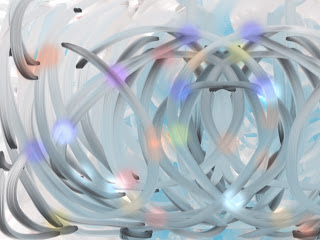By taking interdisciplinary cause-effect analysis, we should not only fix tough problems thoroughly but more importantly, predict some hidden risks and resolve critical conflicts effortlessly.
Digital society today is not a "closed system" but a dynamic digital ecosystem that is complex, interrelated, and interconnected. Every opportunity has risks in it, and every risk is perhaps embedded with hidden opportunities. Every problem might have multiple causes; while every decision-making has some unpredictable effects. Most of the time, cause-effect is nonlinear in this complex world. While there isn't a specific field directly called "cause-effect anthropology" or philosophy, both fields utilize the concept of causality extensively:Anthropology in cause-effect: Usually people are both cause and effect in many problem-solving scenarios. Therefore, anthropology provides the angle to understand issues and human-related effects; as well as how some critical issues impact human societies. Analyzing cause-and-effect relationships helps them understand the dynamics of social change; and examine how economic factors like globalization influence migration patterns and social structures within communities.
Anthropology focuses on empirical evidence, and understanding cultural practices. Anthropologists primarily rely on observation and historical records to establish causal relationships between events and cultural practices. They employ a human-centric lens to explore the historical, social, and environmental factors that led to the development of these practices. They study the reasons behind cultural norms, rituals, and traditions; investigate social change; and examine how various events, policies, or technological advancements cause shifts in social structures, economic systems, and cultural transformations.
Philosophy in cause-effect: Cause-and-effect relationships play a crucial role in establishing logical reasoning and drawing sound conclusions. Cause-and-effect reasoning helps individuals evaluate the potential outcomes of their choices and make informed decisions. Philosophers often engage in theoretical discussions and thought experiments to analyze cause-and-effect relationships. Philosophical lens provides an in-depth understanding of complexity in reality, and abstracts our thoughts about detailed circumstances, allowing us to dig underneath the surface, and perceive the real causes, not just symptoms. A central question in philosophy is how we acquire knowledge and what constitutes valid justification for our beliefs.
Philosophers grapple with questions about the fundamental nature of reality, existence, and human’s great intention to pursue truth and wisdom. Philosophical discussions around ethical dilemmas often involve analyzing the potential consequences of different actions. Philosophical brainstorming about digital transformation or globalization clarifies the purpose of such changes, and the cause-effect of underneath problem-solving.
Understanding causal relationships is essential for comprehending how events unfold and whether our actions have predetermined consequences. Philosophy abstracts the thoughts; explores cross-disciplinary knowledge and methodologies, and delves into the logical underpinnings of causality and causation, reasoning, and results.
Cultuology in cause-effect: What sociology refers to as culture is a reaffirmation of values through totems and history. Culture is a collective value; these values are driven by deeper primal motives which are the mysterious need that humans have to connect. When the culture fails to enable effective management discipline; it’s important to diagnose the root causes, behaviors are on the surface, attitudes are in the middle, and mindsets are underneath.
Usually, cause-effects are multifaceted today in the hyperconnected and interdependent world. It is only when we have to go beyond conventional wisdom, we can dive into the collective thoughts so that we can understand complex situations thoroughly, see them from different angles, listen to different sides of the stories, as well as define our role in framing the right issues and deal with them smoothly.
The reality is a choice. We can choose what reality we prescribe to. Despite the challenges in dealing with tough situations and difficult problems, as humans, we have an innate curiosity to ask questions; experiment and explore the world; analyze problems via cause-effect reasoning, learn from past experiences, and make impressive progress. Anthropology provides the angles for us to see through human nature; the philosophical lens allows us to abstract our thoughts; and differentiate substances from styles; culturology lets us dig into the mindset behind attitudes and behaviors. By taking interdisciplinary cause-effect analysis, we can not only fix tough problems thoroughly but more importantly, predict some hidden risks and resolve potential conflicts effortlessly.











































0 comments:
Post a Comment